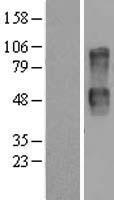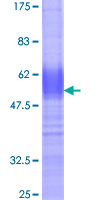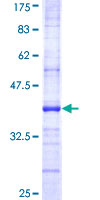order histories, retained contact details for faster checkout, review submissions, and special promotions.
Forgot password?
order histories, retained contact details for faster checkout, review submissions, and special promotions.
Locations
Orders Processing,
Shipping & Receiving,
Warehouse
2 Shaker Rd Suites
B001/B101
Shirley, MA 01464
Production Lab
Floor 6, Suite 620
20700 44th Avenue W
Lynnwood, WA 98036
Telephone Numbers
Tel: +1 (206) 374-1102
Fax: +1 (206) 577-4565
Contact Us
Additional Contact Details
order histories, retained contact details for faster checkout, review submissions, and special promotions.
Forgot password?
order histories, retained contact details for faster checkout, review submissions, and special promotions.
CD164
CD164 molecule, sialomucin
Sialomucin that may play a key role in hematopoiesis by facilitating the adhesion of CD34+ cells to the stroma and by negatively regulating CD34+CD38(lo/-) cell proliferation. Modulates the migration of umbilical cord blood CD133+ cells and this is mediated through the CXCL12/CXCR4 axis. May play an important role in prostate cancer metastasis and the infiltration of bone marrow by cancer cells. Promotes myogenesis by enhancing CXCR4-dependent cell motility. Positively regulates myoblast migration and promotes myoblast fusion into myotubes.
| Gene Name: | CD164 molecule, sialomucin |
| Synonyms: | CD164, CD164 antigen, sialomucin, CD164 molecule, sialomucin, Endolyn, MGC-24, MGC-24v, Sialomucin core protein 24, MUC-24 |
| Target Sequences: | NM_006016 NP_006007.2 Q04900 |







If you do not find the reagent or information you require, please contact Customer.Support@LSBio.com to inquire about additional products in development.









